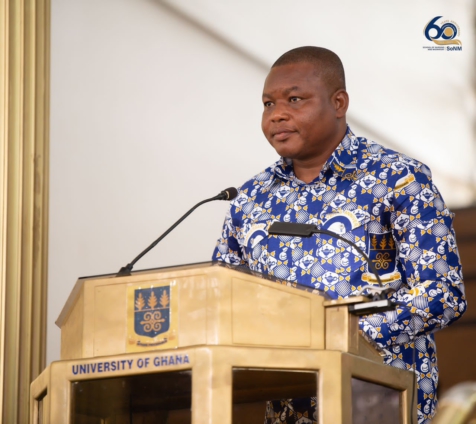Specialist in Health Economics and Health Systems with The World Health Organization (WHO), Prof James Avoka Asamani believes Ghana has to fill the health personnel shortfall if primary healthcare objectives are to be achieved.
Prof Asamani further stated that, "what we saying is that, the number of nurses and midwives that are being trained in the country plus those we already have, assuming we are able to retain them in the country. We still have a shortfall of 66, 000 by 2030, if we want to meet the primary healthcare objectives of the country.
According to Prof Asamani, the country produces twice that number each year, with over 122,000 nurses/midwives already employed.
"In the last 20 years, we have expanded by 840%. This has been made possible through carefully planned interventions and ‘knee-jerk’ policy responses."
Quoting a recent WHO report, Prof Asamani said, Ghana, along with the other five nations (Algeria, the Democratic Republic of the Congo, Ethiopia, Nigeria, and South Africa), account for 66% of the 1.7 million nurses and midwives working in 47 countries of the WHO African Region - adding that, Ghana is undoubtedly a major producer of nurses/midwives. This accomplishment, however, has a paradox, as the disparity between training and work chances has become obvious.
The World Health Organization's (WHO) Team Lead for the Health Workforce for the African Region, a Health Economist and Health Systems specialist, also stated that the country is unable to absorb more health workers while having the potential to create.
"In the last six years, the public sector has commendably employed more than 90,000 nurses and midwives. From 2020 to 2022, we have accumulated 68,800 unemployed nurses and midwives currently searching for jobs. If we add those who will finish school in 2023, we could have more than 90,000 unemployed nurses and midwives, of whom 60% have diplomas or degrees," he said.
He said that because more than 25,000 nurses/midwives are produced each year, the phenomenon of unemployed nurses/midwives would remain in the country for some time.
"Sadly, the majority of those cannot be exported because their skills are not those being sought after in high-income countries."
Prof Asamani also addressed the labor market mismatch, which he described as not necessarily a government failure, noting that about 64% of the country's health spending is already going toward wages.
"In context, it is significantly higher than the African median of 45% and the global median of 57% - the financial strain is evident. As the Honourable Minister for Health, Hon. Kweku Agyemang-Manu, articulated at the Health Summit last week, "Over the years, we have been employing all those trained through the magnanimity of the Ministry of Finance, but now we just cannot absorb all of them."
Citing projections, he stated that if the current trend continues, there would be about 250,000 nursing/midwifery workforce by 2030, meaning that if sustainable measures are not adopted, by 2030, approximately 88% of the health budget will be dedicated to wages, spending nearly a billion dollars annually.
Prof Asamani was a special guest speaker at the 60th anniversary durbar of the University of Ghana School of Nursing and Midwifery on a theme: “Resilience in Developing Nursing and Midwifery Workforce: Embracing Technology and Promoting Excellence.”
Latest Stories
-
Congo, M23 rebels plan return to Qatar talks amid Trump pressure
1 hour -
US, Colombia recall their ambassadors in diplomatic tussle
2 hours -
‘It’s a joke’: Peruvians outraged after president doubles her salary
2 hours -
Putin tells Trump he won’t back down from goals in Ukraine, Kremlin says
2 hours -
Boxer Julio Cesar Chavez Jr arrested by US immigration
2 hours -
Over 100 former senior officials warn against planned staff cuts at US State Department
2 hours -
Dagbang overlord bans celebration of 2025 fire festival in Tamale
3 hours -
BBC senior staff told to ‘step back’ from duties following row
3 hours -
North Tongu DCE urges trust in gov’t as flood victims awaits compensation
3 hours -
2 arrested for murder of Lebanese national in East Legon
3 hours -
NSMQ 2025: GSTS clinch Western Regional Championship to book spot at national
3 hours -
New Supreme Court judges pledge fairness, acknowledge family support
3 hours -
Kilmar Ábrego García alleges torture and abuse in El Salvador prison
3 hours -
Gov’t sets up committee to investigate sale of state lands, including those owned by schools
3 hours -
Angélique Kidjo first black African to get Hollywood Walk of Fame star
3 hours

